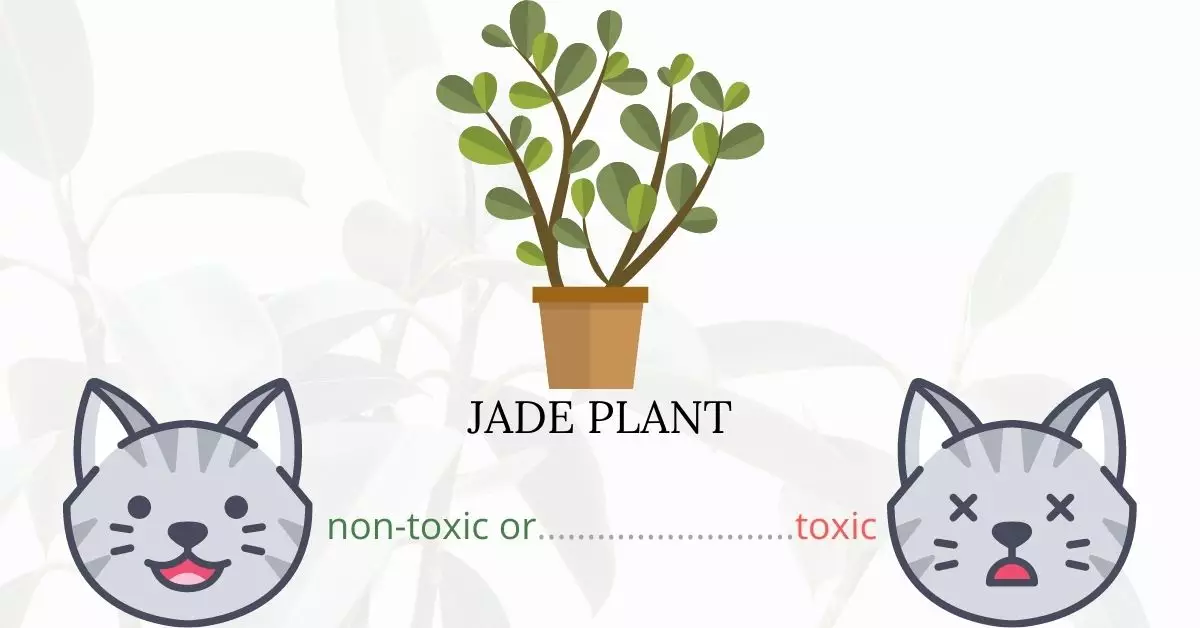Jade plant, also commonly known as Dollar plant, Lucky plant, Money plant, Money tree, and Friendship tree, is indeed toxic to cats. When ingested, it can cause symptoms such as vomiting, lethargy, ataxia, and bradycardia. The exact toxins responsible in the jade plant remain unidentified; thus, if a cat is suspected of consuming any part of this plant, immediate veterinary attention is crucial.
This article is a culmination of collaborative efforts with a team of experienced DVMs (doctors of veterinary medicine). Their invaluable contributions enable us to present accurate and up-to-date information on the potential risks associated with the Jade Plant and its effects on cats. Furthermore, we’ve corroborated our findings by researching high-authority websites like ASPCA and PetMD to ensure the most comprehensive understanding of every plant’s risks.
Clinical Signs of Jade Plant Poisoning in Cats
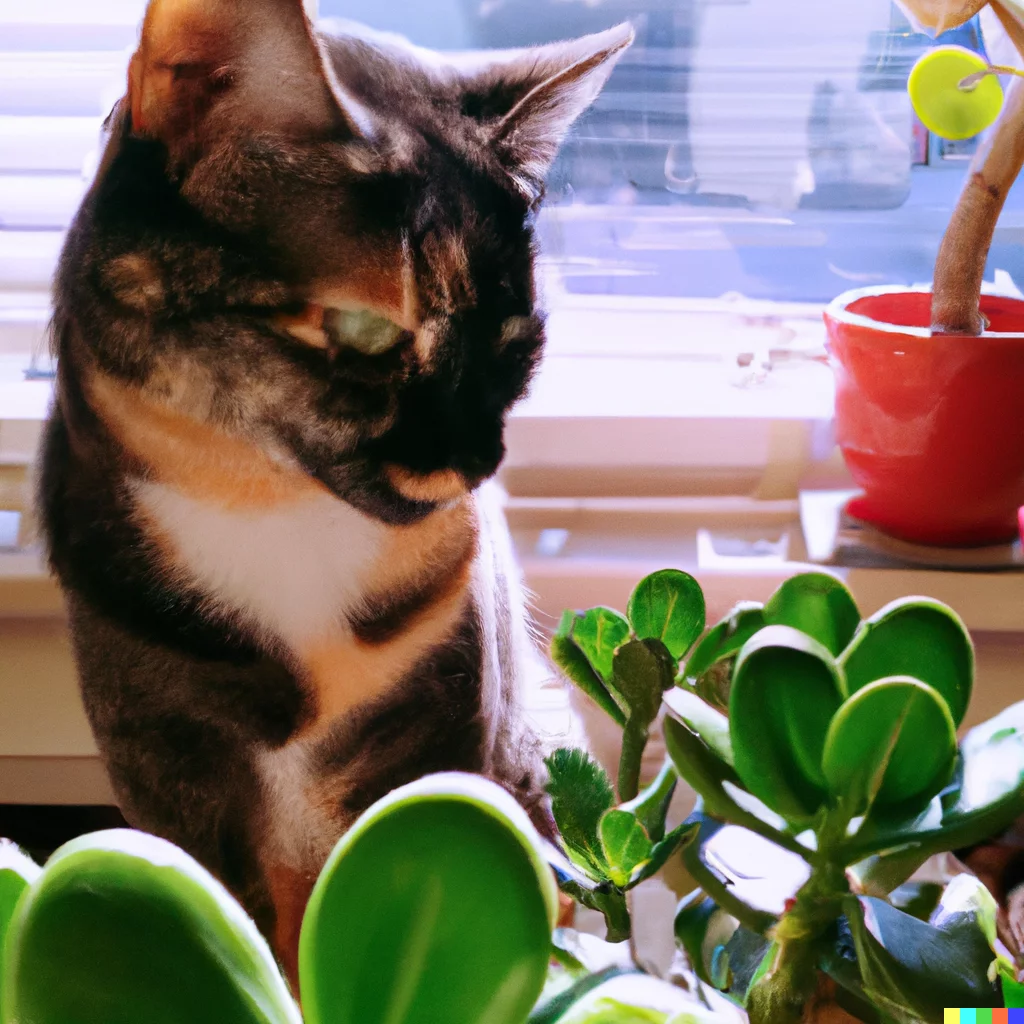
When a cat consumes, makes contact with, or even inhales particles from a Jade Plant, it may experience a variety of symptoms, each resulting from the toxic components found in the plant. These clinical signs range from minor to moderately severe, highlighting the importance of awareness and prompt action.
- Vomiting: The ingestion of the Jade Plant may lead to vomiting as the cat’s body attempts to rid itself of the toxic elements, indicating gastrointestinal irritation.
- Diarrhea: Diarrhea is another method through which the cat’s system tries to expel the toxins, and it can also be indicative of upset in the gastrointestinal tract.
- Depression: Interaction with Jade Plant may cause a depressive state in cats, reflecting the overall malaise and discomfort experienced due to the plant’s toxins impacting their system.
- Ataxia or Loss of Coordination: The toxins in the plant may affect the cat’s neurological system, leading to a loss of coordination and balance, manifested as ataxia.
- Bradycardia or Slow Heart Rate: Consumption of Jade Plant can lead to a slowdown in the cat’s heart rate, bradycardia, suggesting a possible effect on the cat’s cardiac functions due to the unidentified toxins present in the plant.
- Dermatitis or Skin Irritation: Contact with the Jade Plant’s sap can cause dermatitis or skin irritation, as the external tissues react adversely to the chemical components of the sap.
Each of these symptoms occurs as the cat’s body responds to the harmful elements in the Jade Plant. Immediate veterinary consultation and intervention are crucial if a cat is suspected to have come in contact with or ingested this plant, to manage the symptoms and prevent further complications.
First Aid and Treatment of Jade Plant Poisoning in Cats
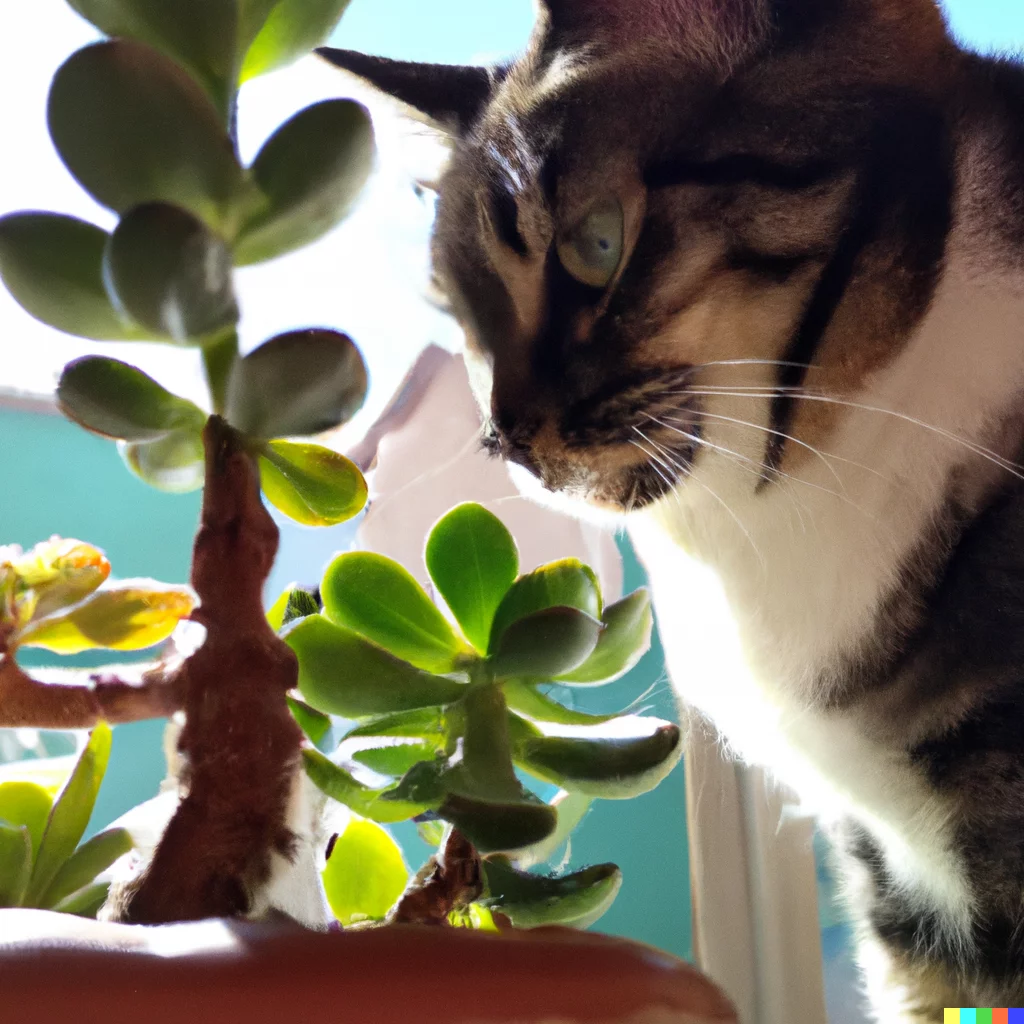
In cats, there is no known remedy for jade plant poisoning. Plant poisoning in cats, on the other hand, will be treated accordingly based on the symptoms that your cat is manifesting. To eliminate the poisons from the cat’s gastrointestinal tract, your veterinarian may induce vomiting. If vomiting persists, your veterinarian may prescribe anti-vomiting medicine. It is also possible to administer activated charcoal, which is typically used to absorb toxins in the cat’s stomach. Intravenous fluid therapy may be required for cats that have become dehydrated owing to vomiting or fluid imbalances. Poisoning that is severe may necessitate more extensive treatment or hospitalization.
Other drugs may be also prescribed by the veterinarian as needed in your cat’s situation. In case of cat’s skin irritation, topical ointment or special medicated shampoo may be recommended by the doctor.
Recovery from Jade Plant Poisoning in Cats
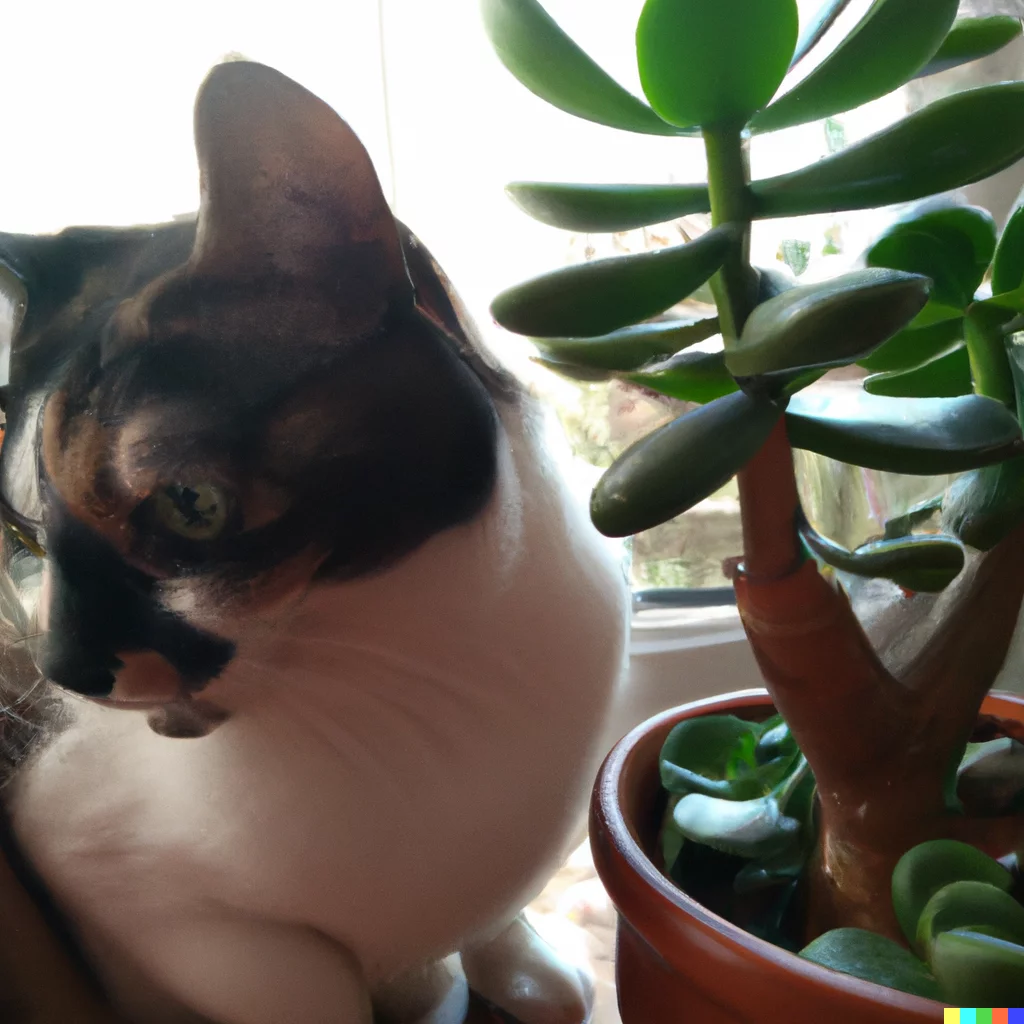
The majority of cats can recover from jade plant poisoning in as little as twenty-four hours if symptoms were recognized and treated promptly. However, in severe cases of jade plant poisoning, this may not be the case. Your veterinarian can help you devise a recovery strategy based on your cat’s condition.
Prevention of Jade Plant Poisoning in Cats
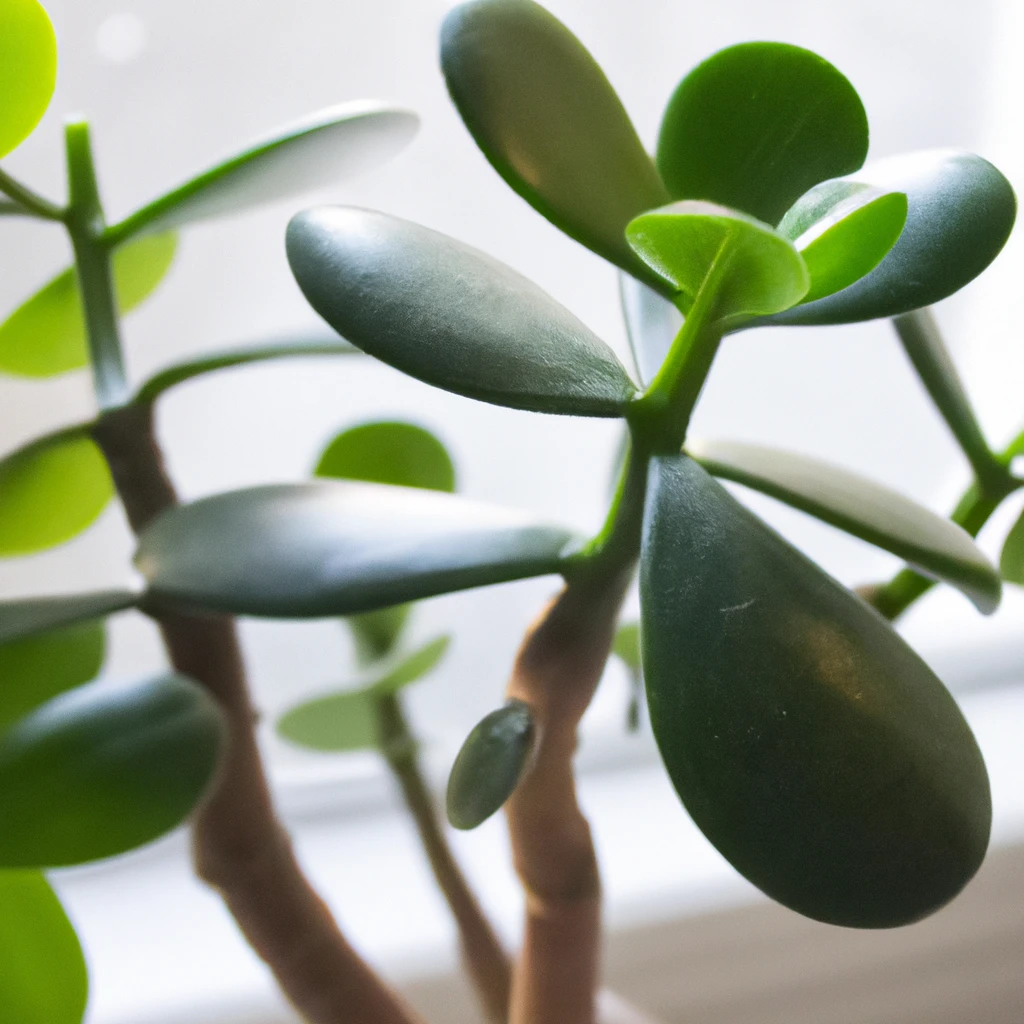
If you have a jade plant at home, remove it right away. Cats are naturally inquisitive and clever so do not be complacent and assume that your cat will not be able to reach a plant. To be on the safe side, avoid growing any plants that are known to be harmful to cats in your home. Restrict their access outdoors to limit their exposure to plants around your area.
If you love plants but have cats at home, check out these lists:


